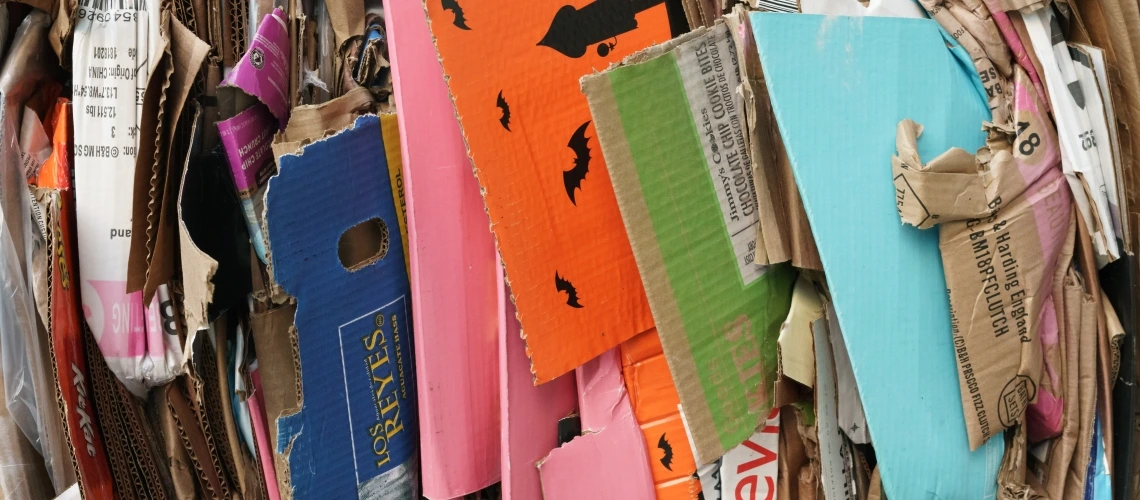UArizona Begins Zero Waste Audit Fellowship with PLAN Atlas

By PLAN Atlas Fellow, Annika Risser
The Office of Sustainability has teamed up with the Post-Landfill Action Network (PLAN) to assess the University of Arizona’s waste management systems and procurement practices. PLAN is a zero waste consulting organization that works with campuses to assess the current policies that are in place within the institution. Based on the findings in the first phase of the PLAN Atlas Fellowship, PLAN then works with campuses to create a “zero waste roadmap” and develop a list of actionable items that the University can implement on campus to reduce waste.

The Atlas Fellows of Fall 2021 from Left to Right: Jaden Iniguez, Annika Risser, and Jessie Crown.
Earlier this year, the Office of Sustainability received a grant from a donor that went toward hiring two new student employees to work on the PLAN Atlas project along with another student employee. Our PLAN Atlas Fellows have identified stakeholders on campus and have been reaching out to these stakeholders to interview them about their department’s waste management systems. By analyzing the data gathered in the interview phase, we will be able to identify current gaps in our waste management and procurement policies, as well as gaps in communication between departments. Once all interviews have been completed and the data has been analyzed, the University of Arizona can then begin to implement meaningful changes on campus that will help us reach our ultimate goal of becoming a zero waste campus.
Last year, the University of Arizona had a diversion rate of 40.5%, which means that the University was able to redirect 40.5% of its waste away from landfills and into recycling or compost programs. The University produced 2308.55 tons of recycling in 2020, which is about 98.38 pounds of recycling per student. UArizona also produced 3227.67 tons of trash in 2020, which is approximately 137.55 pounds of trash per student. UArizona and the Office of Sustainability have also entered into an Intergovernmental Agreement with the City of Tucson to restart a city wide compost collection operation with the Compost Cats. The service is currently collecting and composting organic waste from businesses around the city and the UArizona campus.
While the reestablishment of a compost program is great for keeping organic waste out of our landfill, it is important to remember the Zero Waste Hierarchy (see diagram below) when we are assessing waste management progress on campus. Prioritizing the reuse of materials and the redesign of current systems is more effective at reducing waste and reaching Zero Waste goals than boosting recycling programs. This is why current waste management assessments are relying less on the diversion metric than they have in the past.

A Zero Waste Hierarchy. Source: zerowasteeurope.eu
The PLAN Atlas Fellowship is a unique way to measure waste reduction on college campuses because it takes a more holistic approach to analyzing what it means to reduce waste. Instead of measuring campus waste reduction using the diversion metric, PLAN takes a broader approach that allows campuses to understand the gaps in university systems and communication, which can then be used to recommend ways in which institutions can close those gaps to make waste reduction more effective and efficient. The PLAN Atlas Fellowship assesses not only the current state of waste management on college campuses, but it also identifies the policies and practices that led to that conclusion.
The approach that the Post-Landfill Action Network takes to waste reduction is one that focuses on infrastructure changes. In their own blog post, PLAN addresses the importance of creating change in infrastructure before urging behavioral change. They recognize that it is the responsibility of universities to change their policies and practices so that reducing waste is more convenient and realistic for students. By homogenizing practices on campus to create campus-wide policies, students can more easily understand what is expected of them when it comes to their role in campus waste reduction.
For the University of Arizona, stage one of the PLAN Atlas Fellowship will be wrapping up just after the end of this Spring semester. The University will be provided with a “Zero Waste Scorecard” and 10-15 main suggestions for how we can most effectively work toward zero waste on campus. This upcoming Fall semester, two of our PLAN Atlas Fellows will continue their work with the Post-Landfill Action Network during stage two. During this stage, the PLAN Atlas Fellows will continue identifying ways in which the University of Arizona can implement zero-waste initiatives on campus, as well as improving student engagement with zero waste practices.
Questions? Please email Office of Sustainability Project Coordinator CJ Agbannawag at cagbanna@email.arizona.edu.
